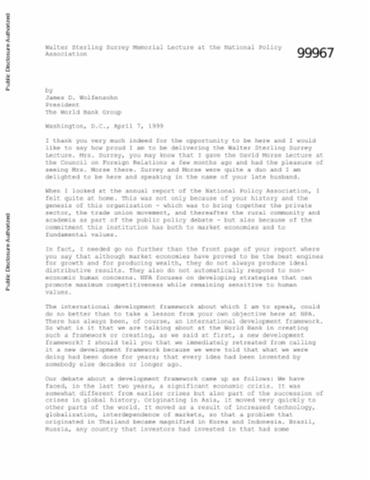Contribution of the Sahara and Sahel observatory to the first meeting of the committee of development information
The countries of circum-Sahara Africa adversely affected by desertification, their sub-regional organisations, their Northern partners and the concerned international organisations of the United Nations System have created the Sahara and Sahel Observatory (OSS) in May 1992. OSS's mission is conducted within the international framework of the Convention to Combat Desertification (CCD) and Agenda 21 and aims to favour the development and the optimisation of its African partners' information wealth, for an optimal use of the means for combating desertification.







